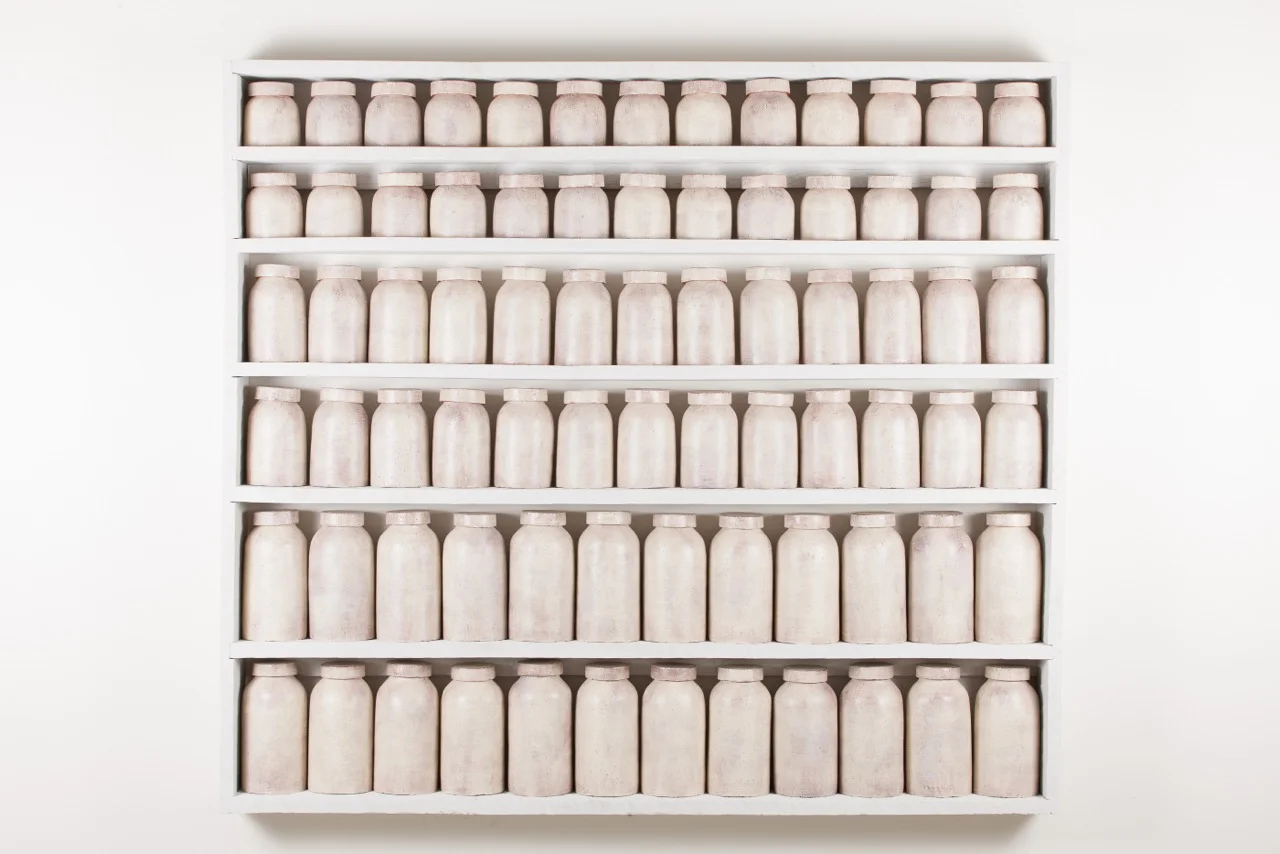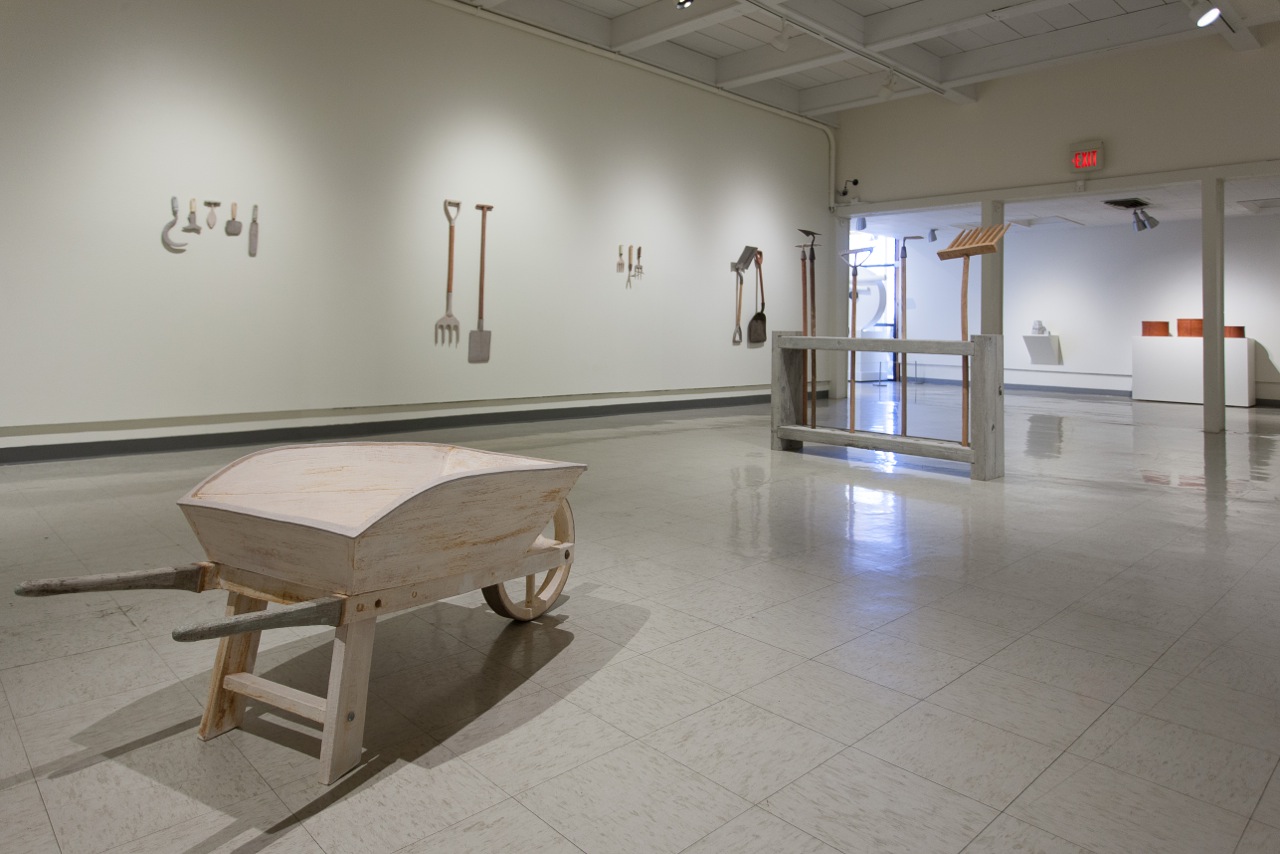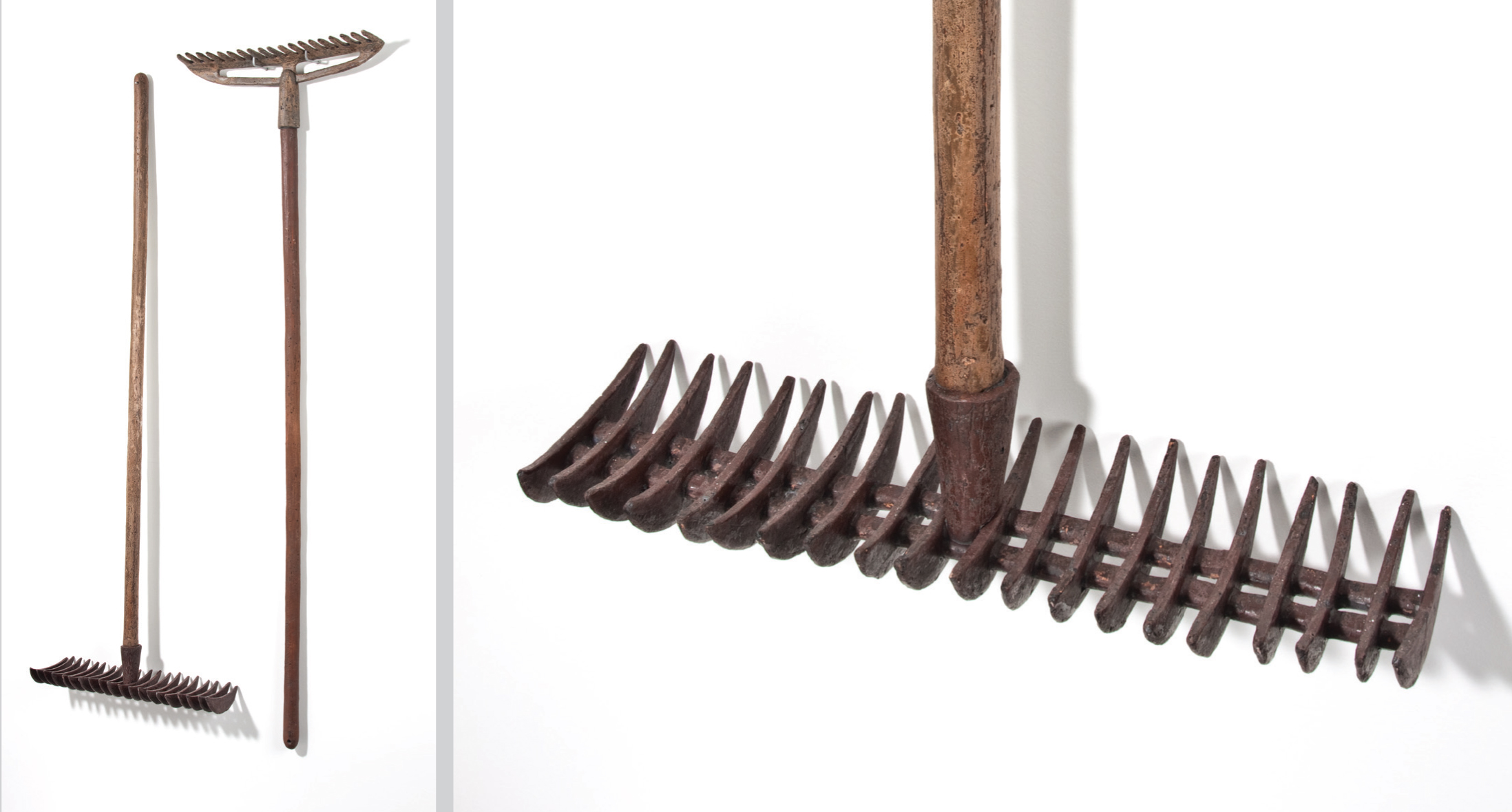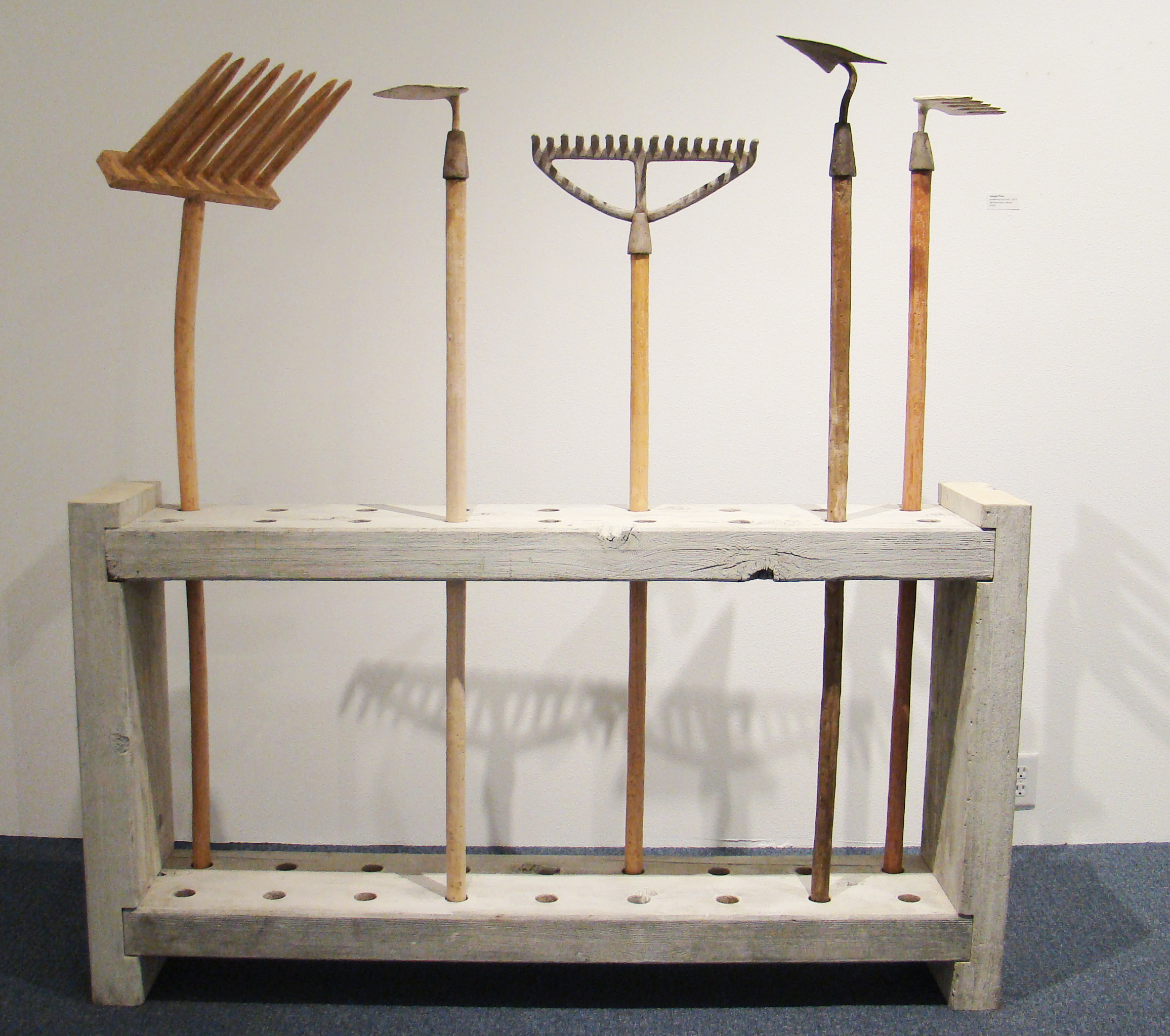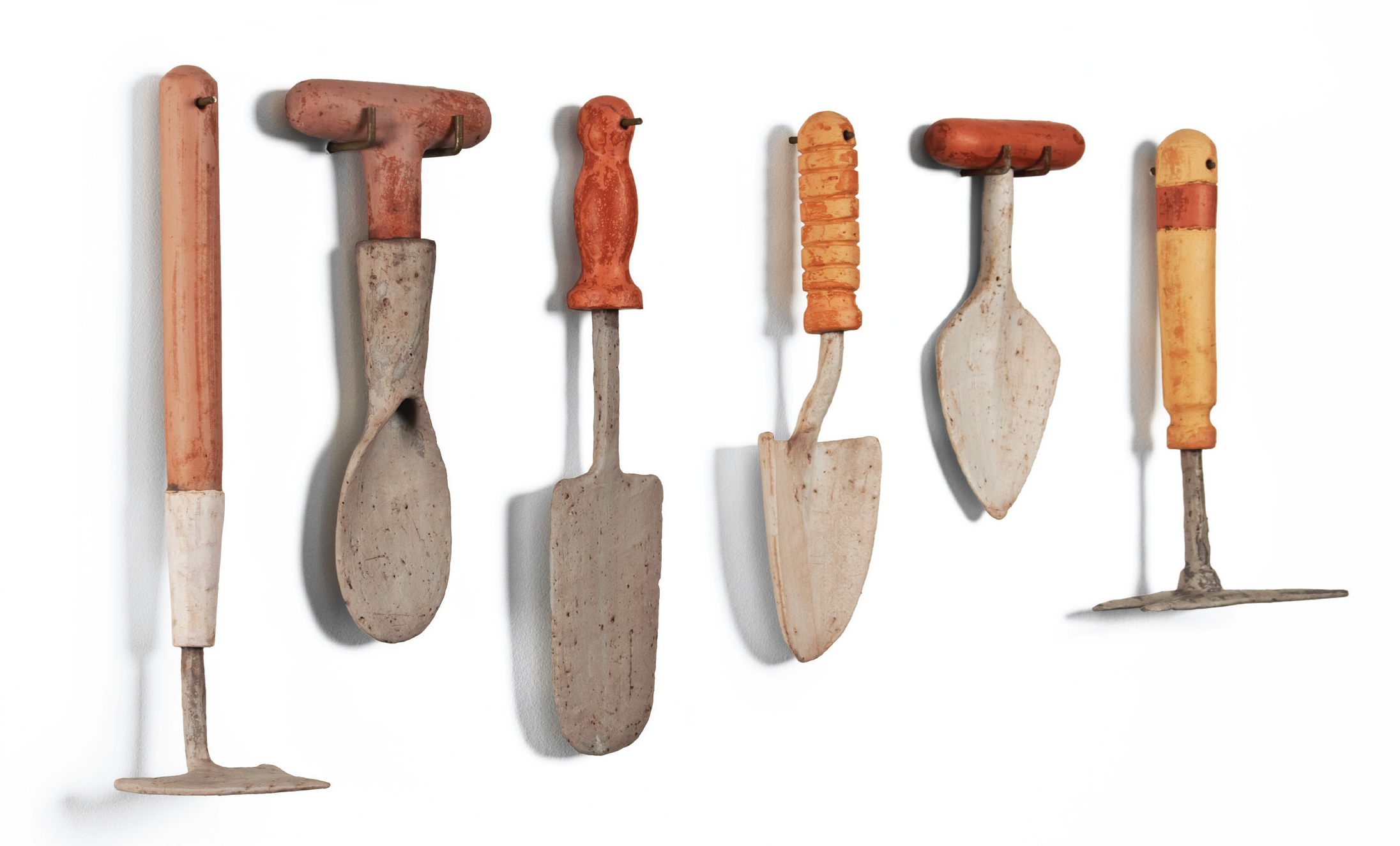AMoCA Collection | mason jars, earthenware and wood, 55.5 x 62 x 6", 2014
RAIR | 2013-14
Joseph Pintz | Columbia, MO
Joseph Pintz’s work is inspired by everyday objects from the domestic realm. Pintz became fascinated with material culture while studying anthropology and urban studies at Northwestern University. After earning his MFA from the University of Nebraska-Lincoln, he was a resident artist and Lincoln Fellow at the Archie Bray Foundation. His work has been shown internationally and he has received the Emerging Artist Award from the National Council on Education for the Ceramic Arts as well as the Ohio Arts Council’s Individual Excellence Award. His work is part of several collections including the Museum of Contemporary Craft, Cedar Rapids Museum of Art and Nora Eccles Harrison Museum of Art. He is an Associate Professor at the University of Missouri.
I choose to slow down and celebrate the poetics of the commonplace.
Objects act as silent witnesses to our lives. Even simple household tools become dense with meaning through use; they reveal a wealth of information about our culture’s traditions, values, and beliefs. My work explores the role that domestic objects play in fulfilling our physical and emotional needs.
Our contemporary culture of convenience has traded vegetable gardens and homemade meals for fast food drive-throughs and TV dinners. This cultural shift motivates my interest in the tools related to the production and processing of food. Tools are a special class of object; they “trip a spark; like a welder’s rod, across a gap between maker and artifact.”* Even at rest, they speak of visceral labor as well as the fruits of that labor. Although my utensils and implements do not function in the traditional sense, they cause us to reconsider our preconceived ideas about usefulness and the notions of worth we associate with it.
We often begin to grasp the significance of objects when they are lost, broken or worn out. The weathered surfaces of my tools suggest this history of use; they serve as symbols of self-sufficiency and doing things by hand. As the distance between consumers and the sources of our food grows, my strong reference to the hand draws attention to our complex and evolving attitudes toward labor and food.
The physicality of making defines who I am – whether it is working in clay, tending to the garden, or cooking a homemade meal. In response to the ever-increasing pace of life, I choose to slow down and celebrate the poetics of the commonplace.
*McCreight, Tim. The Syntax of Objects. Portland, ME: Brynmorgen Press, 2005. 13.
